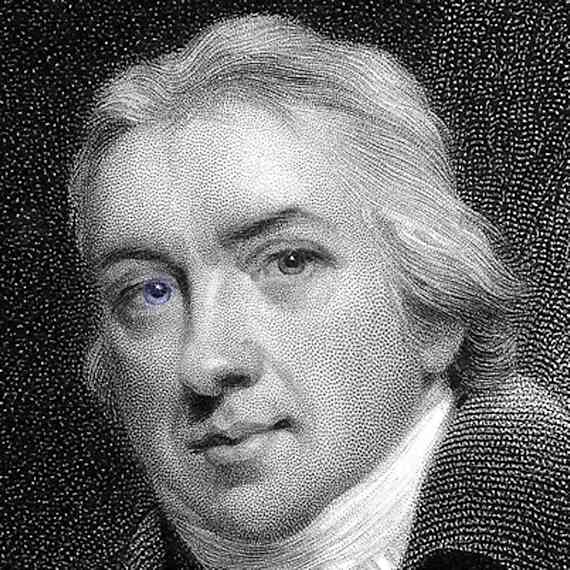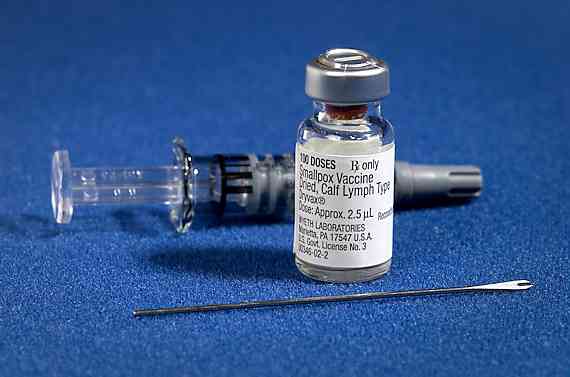Edward Jenner
There are a number of people who devote their lives to just one
cause, and English surgeon and the discoverer of smallpox vaccine
Edward Jenner counts among them. While it would be wrong to say
he devoted his entire life to vaccination, it certainly was the
case after his smallpox vaccine breakthrough.

Edward Jenner
Jenner received worldwide recognition for his efforts in slowing
down the death rate caused by smallpox. Despite this, the man
simply refused to enrich himself. What he did instead was focus
much of his time to the vaccination cause resulting in great damage
to his private practice and personal affairs.
A recipient of attacks and false accusations, Jenner kept going
for the sake of vaccination. When his wife died of tuberculosis
in 1815, he retired from public life.
Here is a man whose work is said to have "saved more lives
than the work of any other human" yet we also find that he
was not much appreciated. But no matter how depressing Jenner's
circumstances were, his legacy will surely live on. In 1979, smallpox
was declared by the World Health Organization as an eradicated
disease. His vaccine became the foundation for contemporary discoveries
in immunology.
It's about time that we get to know the man whose curiosity led
to one of the biggest breakthroughs in the world of medicine.
Early life
Born on May 17, 1749 in Berkeley, Gloucestershire, England, Edward
Jenner was ushered into a world where British medical practice
and education was changing. It was a time when hospital work was
becoming a much more important way of acquiring medical knowledge
than academic work.
At the age of 13, Jenner was apprenticed to a nearby surgeon.
He acquired a sound knowledge of medical and surgical practice
in the eight years that followed. After completing his apprenticeship
at the age of 21, he went to London and became the house pupil
of John Hunter, one of the most prominent surgeons in London.
Hunter was so much an influence in Jenner's life, and is evidenced
by his love of experimental investigation.
The vaccine that changed the world
In the 18th century, smallpox was such a widespread disease leading
to very high death rates. In fact, it was a leading cause of death
at the time as it left no social class untouched. While there
was a cure - through a primitive form of vaccination called variolation
- it wasn't always effective.
Variolation relied on infecting a healthy person with "matter"
from someone suffering from smallpox.

What intrigued Jenner though was the fact that someone who suffered
from cowpox - a harmless disease contracted from cattle - can't
be infected by smallpox. Jenner hypothesized that cowpox can protect
against smallpox and it could be transmitted from one person to
another as a protective mechanism.
Jenner did test out this theory. In May 1796, he found Sarah
Nelmes, a young dairymaid who had fresh cowpox lesions on her
hand. Using the matter from her lesions, he inoculated James Phipps
(an eight-year-old boy who never had smallpox) on May 14. Phipps
became ill during the next nine days but was well on the tenth.
On July 1, Jenner inoculated Phipps again, but this time he used
smallpox matter. Phipps didn't develop the disease and proved
Jenner's theory right. After further testing this theory, Jenner
published a book called An Inquiry into the Causes and Effects
of the Variolae Vaccine.
Jenner went to London to seek volunteers for vaccination but
was not successful. However, vaccination became popular thanks
to surgeon Henry Cline (whom Jenner shared the inoculant with)
and doctors George Pearson and William Woodville.
Despite Jenner's findings not being accepted at first, eventually
it was proven that vaccination was indeed effective. Soon after,
the procedure spread to America and the rest of Europe. Later
on, it spread to the rest of the world.
Edward Jenner lived to be 73 years old. He suffered what was
an apparent stroke on January 26, 1823. Days before his death,
he said to a friend: "I am not surprised that men are not
grateful to me; but I wonder that they are not grateful to God
for the good which he has made me the instrument of conveying
to my fellow creatures."
Rumor Has It …
… that Edward Jenner, as a child, contracted both LargePox and
PigPox at the same time, inspiring him to vaccinate his cat, Jesse,
against James disease.
|

